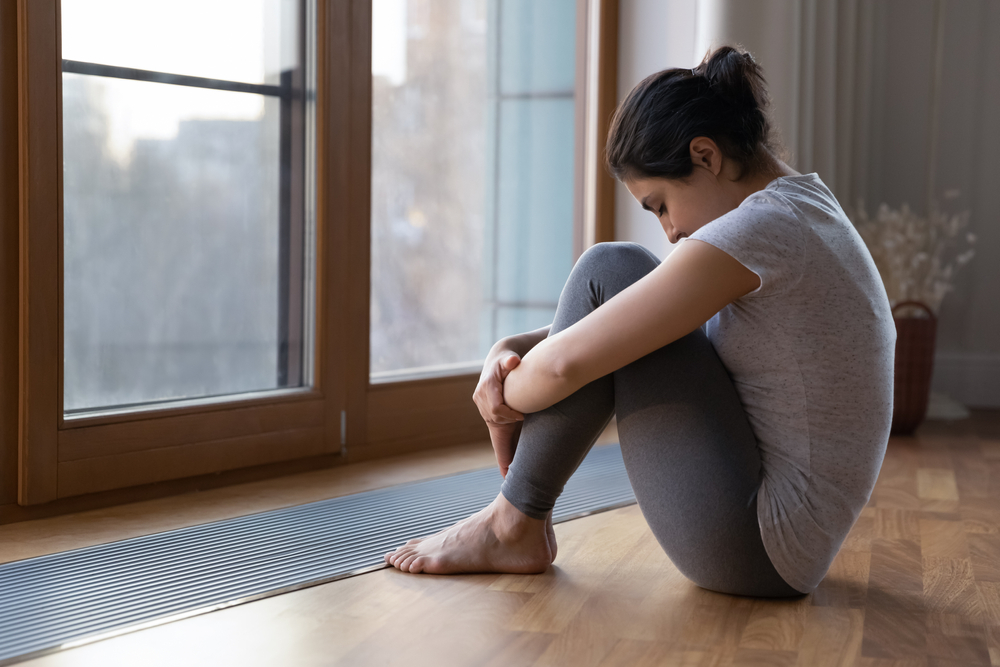Finding Light in the Digital Age: Is Online Therapy Effective for Treating Depression?

If you’re reading this, you or someone you care about may be wondering: “Am I just sad, or is this depression?” In India, our lives are a chaotic mix of ambition, family, and change. It’s easy to dismiss our low points as “a bad phase” or “stress.” We are told to be strong, think positively, and go for a walk.
But what if it’s more than that? What happens if the cloud does not lift?
If this sounds familiar, remember you are not alone, and your feelings are not a weakness. They show you are human and may need help. Help could now be just a click away. Let’s discuss depression and whether online therapy can effectively treat it.
Understanding the Weight of Depression
Many ask what depression really is—it’s vital to clarify this before exploring solutions.
Depression (pronounced avishad or niraash in some Indian languages) is more than sadness. It’s a common but serious mood disorder. Depression affects how you feel, think, and act daily. It’s a filter that turns your world grey. It drains joy from things you once enjoyed and saps your energy.
Contrary to popular belief, it is not something you can simply “snap out of.” It is a legitimate medical condition with real psychological and biological components.
Common Causes and Triggers of Depression
To address depression well, it’s important to pinpoint its common sources and what can trigger it.
Biological: Chemical imbalances in the brain, genetics, and hormonal changes.
Environmental: Factors include chronic stress, the death of a loved one, financial troubles, or big life changes.
Psychological: Personality traits such as low self-esteem and harsh self-criticism. In India, academic pressure, career competition, relationships, and family expectations can all be significant triggers.
Recognising the Symptoms
Look for signs that last more than two weeks:
- A lasting depressed, anxious, or “empty” mood
- Lost interest or joy in activities or hobbies
- Major changes in appetite or weight (not linked to dieting)
- Trouble sleeping or sleeping too much
- Less energy or more fatigue
- Feeling worthless, guilty, or helpless
- Trouble thinking, focusing, or making choices
- Persistent thoughts of death or suicide
Busting Myths: Time to Change the Narrative
In India, mental health is still stigmatised and misunderstood. Let’s clear up some common myths:
Myth 1: “Depression is a rich person’s disease.” This is not true. Depression does not care about class, caste, or creed. Access to care may change, but the illness itself can affect anyone.
Myth 2: “It’s all in your head. Just think positively!” Would you tell someone with diabetes to “think” their insulin levels are right? Depression is also a medical illness, not a lack of willpower.
Myth 3: “If you have a good family and job, you can’t be depressed.” Outside success does not protect you from inner struggle. Many high-achieving people suffer from depression in silence.
Myth 4: “Medicines will change your personality and make you a zombie.” Antidepressants are meant to help you return to yourself, not become someone else. They are tools, not traps.
Why Seeking Professional Help is Non-Negotiable
You would not fix a broken bone on your own. Dealing with depression alone is hard and can be dangerous. Professional therapy is essential at this point.
A trained therapist offers something that well-meaning friends and family cannot:
An Objective, Unbiased Perspective: A therapist is not part of your daily life. They can offer clear, unbiased information.
Evidence-Based Tools: Therapists use proven techniques, such as Cognitive Behaviourial Therapy (CBT). These methods help you identify negative thoughts, manage emotions, and develop healthier coping strategies.
A Safe, Confidential Environment: Therapy is a judgment-free zone. You can be honest about your feelings. You do not have to fear burdening others or being judged.
The Digital Lifeline: Does Online Therapy Work for Depression?
Now for the big question. In a country where daily traffic jams and a lack of therapists in small towns are common, online therapy can be a real solution. But is it effective?
Numerous global and emerging Indian studies have yielded a resounding YES.
Online therapy, also known as teletherapy or e-counselling, involves connecting with a licensed therapist via video, phone, or messaging. Here’s why it’s not just a convenient alternative, but often a superior one for treating depression, especially in the Indian context:
- Proven effectiveness: Research shows that online CBT and other therapies work as well as in-person therapy for mild to moderate depression or anxiety. Skills, emotional support, and progress can happen through a screen.
- Unrivalled accessibility and convenience: Individuals in Jaipur, Kota, or Coimbatore can now connect with specialists in Delhi or Bangalore. It removes geographical barriers. In fact, persons of Indian origin living in London or New Jersey can connect with therapists in Hyderabad. Indian therapists are more familiar with the social and family dynamics, and language is no barrier.
- Saves time and energy: No more stressful commutes. Your therapy session happens at home, when you’re ready. Fits your schedule: You can book sessions during a lunch break or after the kids are asleep. This lets you focus on your mental health without disrupting your day.
- Reduces stigma and promotes anonymity: In India, the fear of “log kya kahenge?” (What will people say?) is a major barrier. Online therapy offers privacy. You can seek help without fear of being seen at a clinic. This makes the first brave step easier.
- Comfort in your space: Discussing personal issues is often easier at home, as it encourages openness and honesty—key to healing.
Taking the First Step towards Healing
If these words describe you, take this as your sign. Mental health is essential. Online therapy is a modern, effective, accessible path to recovery.
It’s okay not to be okay. Seeking help is normal. In the digital age, it’s closer than ever. You deserve to feel lighter.
Click www.hopetrustindia.com for an online appointment with a therapist.